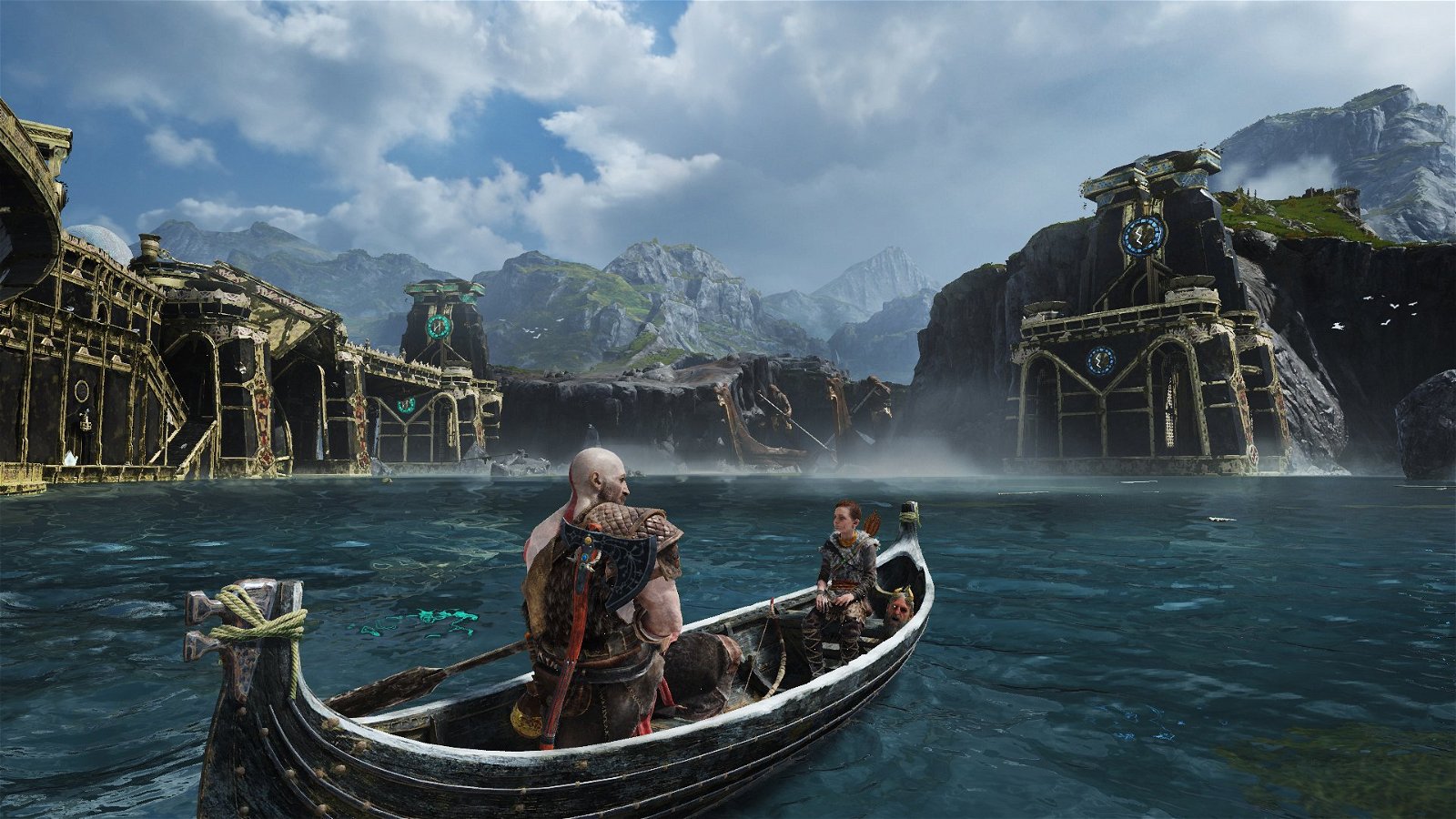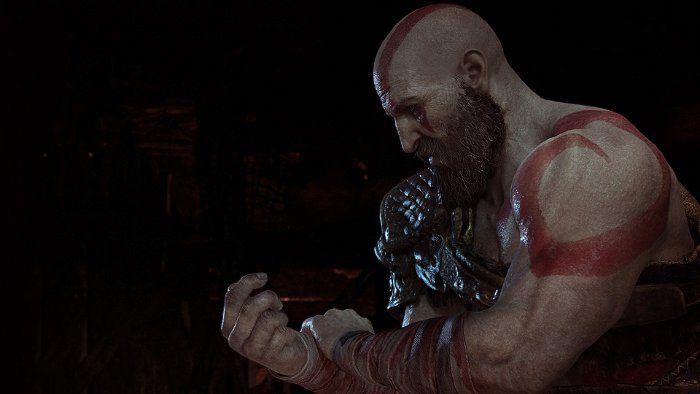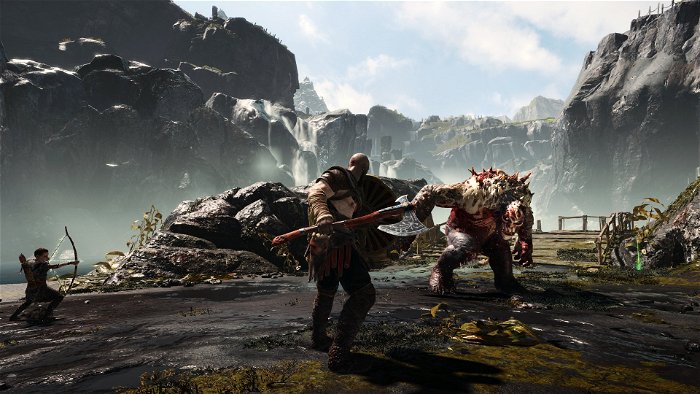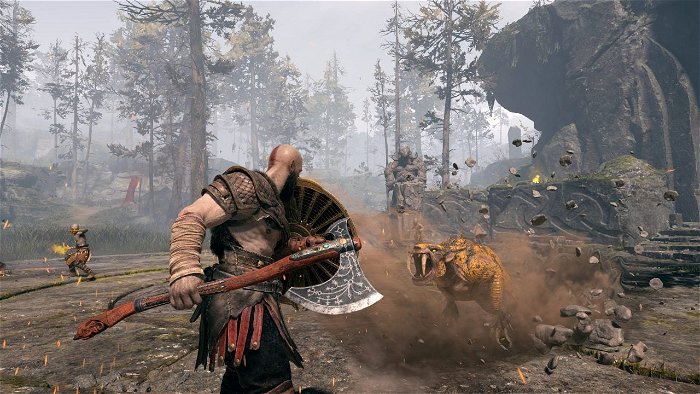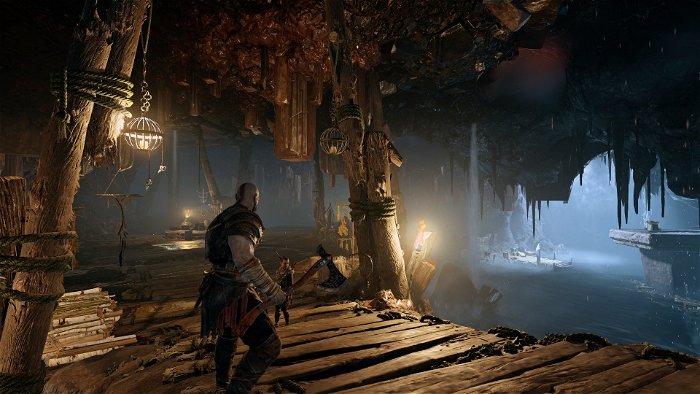God of War has always been a franchise that evokes the sense of epic scale.
It is a world filled with monsters, mythical beings, and above all: gods. To capture this sense of place the right music is needed. The music helps teleport the player to a world of myth and magic, and envelopes the player within the universe the game is trying to convey.
This has never been truer than the latest instalment. Composer Bear McCreary teleports the player using the tools of instrumentation and vocals to capture a world of Norse myth and legend. CGMagazine was lucky enough to chat with Bear over the phone and discuss his process on the game, how the unique sound was crafted, and what the instrumentation adds to the overall God of War experience.
CGMagazine: The previous God of War games had a very orchestral epic sound. What references did you take from previous games when moving into the Nordic setting and the more rural nature of this game? Did you take that into account when composing music for this installment?
Bear McCreary: I’m a huge fan of the old games and I played them as they came out originally, so I have no memory of how they felt musically but I did not go back and revisit them and there was no effort made for incorporating that old idea. Really, from director Corey Barlog down, we wanted to focus on reinventing God of War where we were really rebuilding the franchise from the ground up. So I really didn’t think about the music of the old game in any way so I can’t say I was trying to avoid the sound or reference the sound. I just heard the story that I was being presented with and chose the instrumentation imitation and sound and emotion that I thought would best support it.
CGMagazine: Can you talk a bit about that instrumentation and sound that you were trying to convey with the story?
Bear McCreary: Certainly. The experiments when I first came to God of War, which is now nearly four years, began with an intimate raw folk sound. I brought in Nordic folk instrumentation and I brought in instruments such as the Nickle Harper, the Hurdy-gurdy, and the Hardanger fiddle. I brought in some very smart percussion and I used them to create a prototype of what the score might sound like. And I wrote two themes that were very intimate and lyrical and sad and emotional. All of that material ended up in the game but it really ended up being the starting point. From there the score needed to get bigger. I brought in a whole choir we recorded in Iceland and I slammed the choir singing texts that are in old Norse. So the vocal sound went from one singer expanding out to many and brought in an orchestra brass low woodwind big stings. And I used it to augment that core idea of Nordic folk instruments and that core idea of an emotional feeling that is at the centre of the story. From there we reconstructed the epic battle sound I think fans were expecting to hear.
What I did to reconstruct the music of God of War was to deconstruct it down to the absolute infinite folk setting and then add elements of the epic orchestration back on top as needed so that the score is always as big as it needs to be but never bigger.
CGMagazine: You mentioned utilizing Icelandic folk music and Icelandic folk singers for the sound of the music. Why did you choose to add Icelandic folk singers to the atmosphere of God of War?
Bear McCreary: Well some of it was creative and some of it was practical. On the creative side, I wanted to do everything I could to evoke the sound of northern Europe. This myth comes from a pre-Viking society. So even to say that it was Viking music is too late in history. So I was really trying to find the oldest sounds that I could from instruments that evoke that feeling. I mean we don’t have instruments that exist from this time period that would be appropriate. So anything from Northern Europe I put on the table.
Now, why did we go to Iceland specifically? There’s actually a sort of logistical reason. We wanted a very authentic sound to the voices in the game, I wanted the voices to evoke Norse mythology. And so we set all of our texts in Old Norse. It is not a functional modern language. And it’s sort of the oldest language that connects back to this time period we wanted to evoke. And the reality is that the modern Icelandic language is the closest language spoken today to Old Norse.
That means that our choir in Iceland was able to read the Old Norse and pronounce it as if they were just reading. Any other choir in the world would have had to learn it phonetically and take ten times longer and probably not even be authentic. So what we got was this choir called Schola Cantorum who are based in Reykjavik. They had never done a score before. They had never sung on a film or television or video game score. And the result the sound I really think it’s just very special. I think people are used to hearing choirs in games but this specific choir the language, the room we recorded in and the particular voices and accents are all very unique and I thought that was just a tremendous way to add an authenticity to the music that would otherwise be out of our reach.
You can read the full interview with Bear McCreary in the April 2018 issue of CGMagazine. Order your copy here today.
